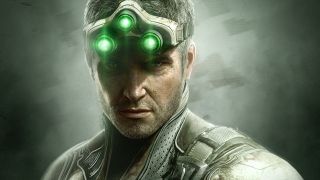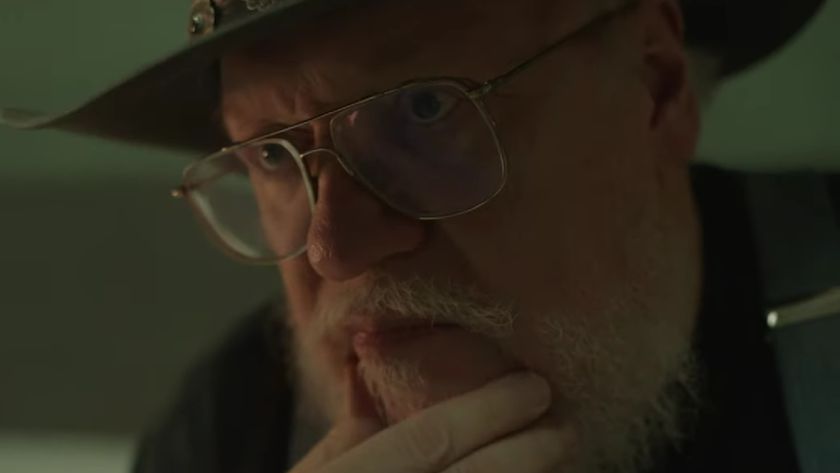Dishonored is an empowering stealth masterpiece. But its greatest trick is its uneasy balance of strength and morality
Dishonored gave us dizzying level of power over our environment, loaded with a heavy question: How far should you really go?
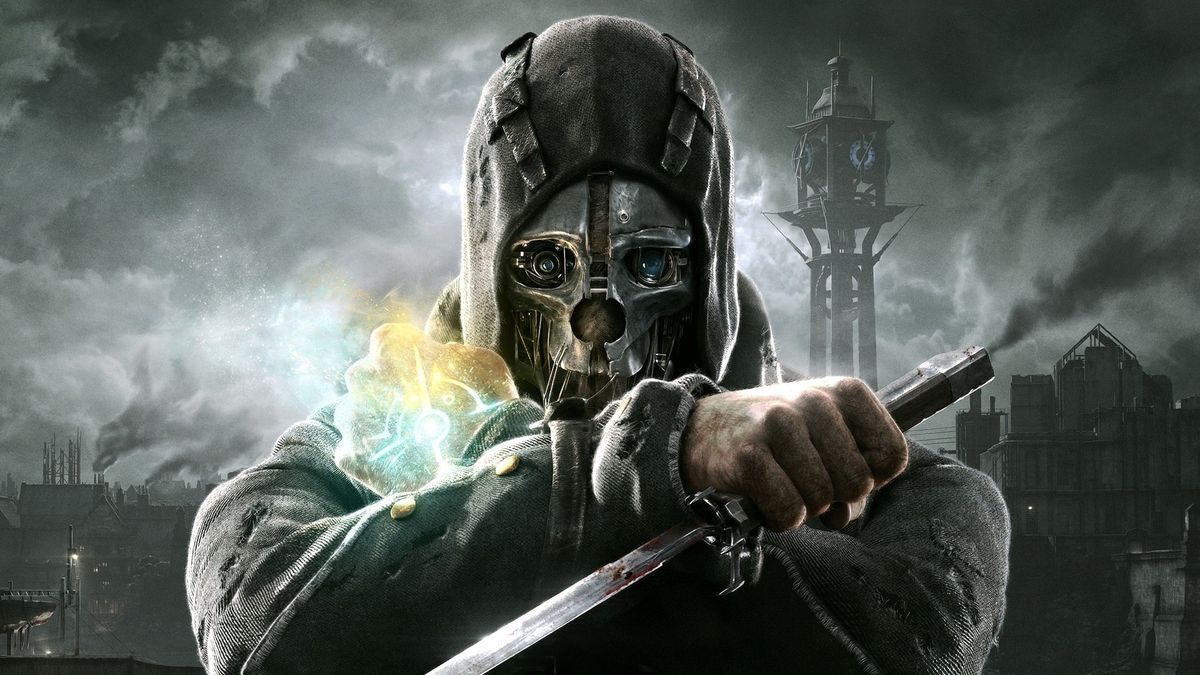
From up there, crouched on the top of a signboard, the Dunwall street looks almost ordered. City Watch guards patrol up and down, and they have an alarm wired to a control box on a wall opposite. There’s an open window across the way, perhaps leading into a house filled with valuables or an alternative route to your goal; at the end of the road lies the main gate that leads directly to it. Spying closer, there are grates you can use to pass through, if you can find a rat to possess. There’s an underpass which might let you slip through without being seen; maybe that rooftop will offer another route.
But down there on the wet cobblestones, order has crumbled into chaos and nowhere is safe. The wide boulevard offers little cover; if the Watch guards see you they’ll come after you with swords and pistols. The rats pooled by the grate will throw themselves at you ravenously if you wander too close. Along the underpass stagger plague-stricken weepers who will vomit and tear at you, and on that rooftop wait quiet, gas-masked assassins.

Yet you feel powerful because you’re armed with knowledge of the streets. You can make choices and form strategies because you’ve seen what’s ahead from on high, and you can always return there because in Dishonored you’re not tied to the ground. Instead you exist in a liminal place between playing actor and observer, dancing between watching, probing, infiltrating, fighting and escaping as you find your way through a broken city that’s opened up by the agility of our hero, Corvo Attano.
He’s lithe and quick, but the most valuable of Attano’s skills is supernatural. With Blink he can teleport to a nearby location, whether behind a guard or to a ledge above, in total silence and with a range that extends far beyond his jump. It gives the player a command over space which overcomes any loitering sentry, dead end or high wall, since you can always zip past or over. With Blink, Dunwall becomes yours, its twisting alleys, byways, roads and tunnels a network of possibilities, even though it’s patrolled by so many dangers.
This sense of control marks Dishonored quite apart from the games that preceded it. As a direct member of a lineage that stretches back to Ultima Underworld, Dishonored fits neatly into the immersive sim genre, first-person games inscribed with rich RPG-like systems which offer players a wide range of choice over how they play in them. From 1992’s Underworld emerged System Shock and later Deus Ex, on which Dishonored’s creative director Harvey Smith was a designer.
In motion, you find control
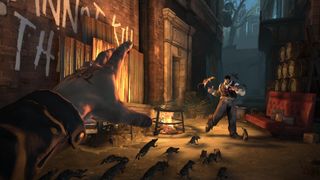
But it’s 1998’s Thief: The Dark Project that Dishonored most closely resembles. The similarities go far deeper than their settings, which both combine Europeanesque history with fantasy, and steampunk technology with magic. In both games, you watch the world from places of safety, looking for opportunities. Stealth games are so often about observation leading to execution: the memorisation of a guard’s patrol to find a precise window for when you can slip through the door they’re posted to protect. But that process has many different shapes.
Thief is a stealth game of light and shadow. Its pace is slow and steady, your positioning fixed on where it’s dark, your speed restricted to your glacial silent crouch or noisy run, and so passage through its levels is methodical, taking each threat as it comes. Ghosting through Thief means rooting yourself to the shadows, at the mercy of the level designer. Dishonored locates its stealth in movement, and its pacing is up to you. You can creep quietly or run, or you can flit from place to place using Blink. Your movement through its levels is spasmodic and dynamic as you make an attempt at entry at one location before trying another. You feel your way through Dishonored, taking opportunities as they arise and adapting to mistakes, because your abilities allow for improvisation and you know you can always escape.
Sign up to the 12DOVE Newsletter
Weekly digests, tales from the communities you love, and more
This pacing isn’t all down to Blink. Attano’s fluid run and jump are important, too, and so is his swift mantling of walls and fences, even if they’re above his head, to stand steadily on their edge. For all his speed, his poise also gives you assurance in knowing he won’t slip or tumble. And if you buy the second tier of his Agility enhancement, he’ll gain a double-jump, giving even greater spatial access.
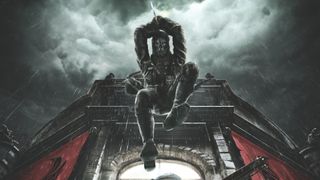
This focus on movement makes Dishonored a much more action-based take on the immersive sim than its forebears. It invites acrobatic feats which test its systems, as a double-jump enables you to reach the pilot of a Tallboy stilt walker and assassinate him before Blinking away to cover, or Blink above a guard and drop-assassinate him, or chain together Blinks that take you across the entire level.
And then there are the Bend Time skills, which slow or even stop time and, when combined with the Possession power, can lead to having guards shoot themselves: let them fire, stop time, possess them and walk them into their own bullet. Consider, too, rewiring environmental features such as Walls of Light, so they disintegrate your enemies, and then mix in a mine which chops its victims into pieces, grenades, guns and crossbows. And underpinning it all is Attano’s blade. In the right hands, Dishonored is a playground of flowing bloody killing, all powered by pure agility.
While Dishonored’s Dunwall City Trials DLC supported that notion with a series of challenge maps that test freeform and creative killing, the core game doesn’t seem to enjoy Attano’s skillset so much. Corvo is many things. As the Royal Protector, sworn to keep his charge, Empress Jessamine Kaldwin, safe, he’s an avenger. A thief, too, since in your attempt to find Jessamine’s daughter and restore her to her throne, you’ll ransack houses for money and runes that will buy upgrades. But you don’t have to be a killer. While the story is hung around the assassination of leaders of the coup which led to the Empress’ death, Attano has an uncomfortable relationship with murder.
Killing is easy, consequences aren't
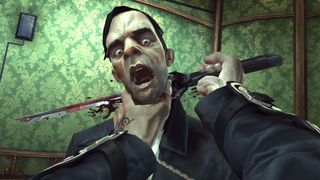
“You made someone a widow, damn you,” a guard will bark if you kill one of his friends. Dishonored does a fair amount to humanise the City Watch, which will bear the most losses at your hands. The first time you see them in action, they’re roughly throwing wrapped corpses from a bridge into the open top of a barge, but you’ll realise the guards are just trying to maintain order in this plague-ridden city, even if they’re working for its corrupt new leaders. After all, they used to work for Attano.
Dishonored’s systems discourage killing, too. Like many other stealth games, it notes and rewards players who avoid letting anyone die, but more than that, the world itself changes as the Chaos level rises. Killing, leaving bodies unhidden and being seen all affect Chaos, and when it ticks towards its high state, guard populations rise, there are more rats and weepers, and the group of characters you’re working with, the Loyalists, start to object to your actions. It even transforms the final level’s nature.
Chaos is a kind of dynamic difficulty system. Since going lethal in Dishonored is generally rather easier than attempting to be stealthy, the additional guards and other threats helps to balance things. And on a thematic level, Dishonored’s harsh treatment of killing adds a new layer to the choices you make.
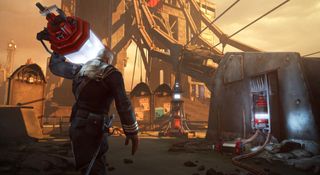
At every turn you’re reminded of the corrupt nature of the people you’re opposing. Your first mark, High Overseer Thaddeus Campbell, is the head of a cultlike religion which mirrors its brutally uncompromising moral code in its fascistic, monumental buildings. Less a church than a cruel bureaucracy, its abbey is filled with records of citizens’ misdemeanours, and rather than pious, Campbell is a scheming liar, cruel torturer and licentious killer who brings prostitutes to his secret chamber and murders them if they attempt to disclose the truth. In other words, he’s deserving of a serious comeuppance.
The simple way would be to murder him, but if you overhear certain conversations and read the notes and other clues you find carefully, you’ll learn that there’s another way of dealing with him: brand his face with a mark that shows he’s a heretic and you can have him excommunicated. There’s a non-lethal way of despatching each of Attano’s key targets, each adding new challenges to the game and new story details, and they all call into question your own immediate desire to kill, whether for revenge or just convenience: a reminder not to stoop to your enemies’ level.
On an emotional level, though, it feels like Dishonored is judging you for using the wonderful playset it’s given you. It’s as if it’s realised just how strong Attano is, with the transformational power of his ability to move so freely and to know so much about the world, and must act to rein him in. This uneasy feeling underscores the full length of the game, but it also complements Dishonored’s general sickly tone.
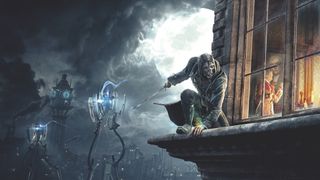
From above, it’s a game of cause and effect, and to be down on the street is to experience how muddled morals can get when you’re up close to them, when an alarm is blaring and a guard is lunging. How easy it is to behead him… In transporting you quickly between both these states, Dishonored exposes the profits and costs of your actions, and isn’t afraid to have an opinion of them.
At least, that is, until you play The KnifeOf Dunwall, a DLC addition in which you
play as Daud, the killer of Empress Jessamine. This seasoned killer has few of Attano’s qualms, none of his high-minded connection to the people. Dunwall is his city, and he knows his place is in its gutters.
This article originally appeared in Edge magazine. For more great coverage, you can subscribe here.

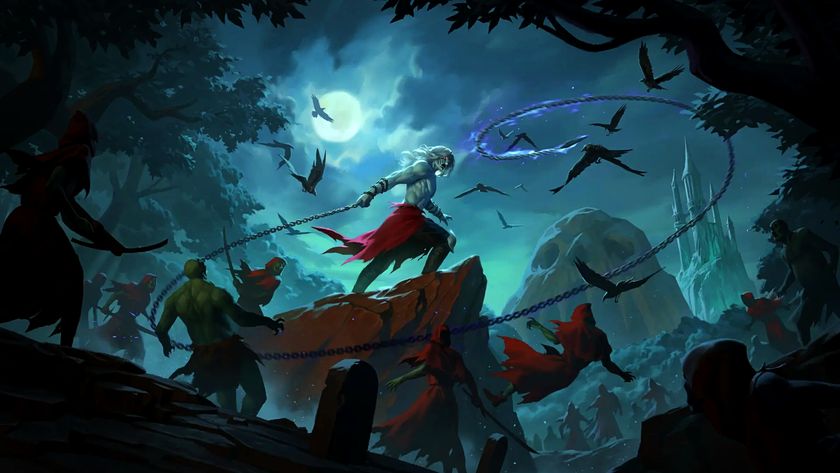

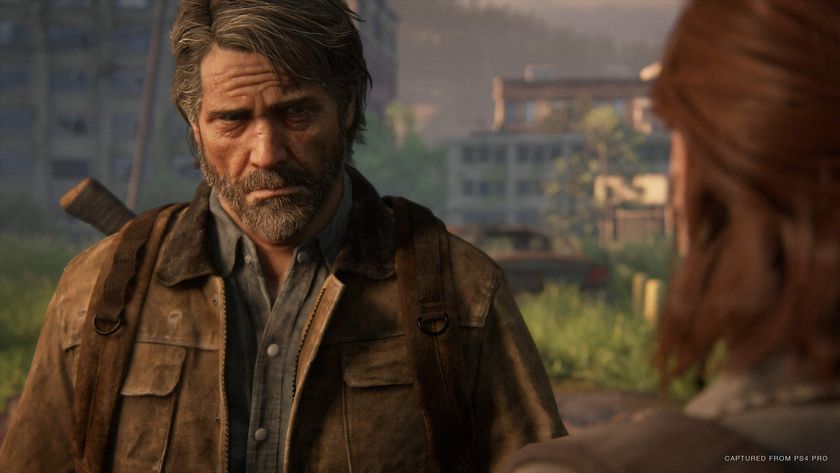
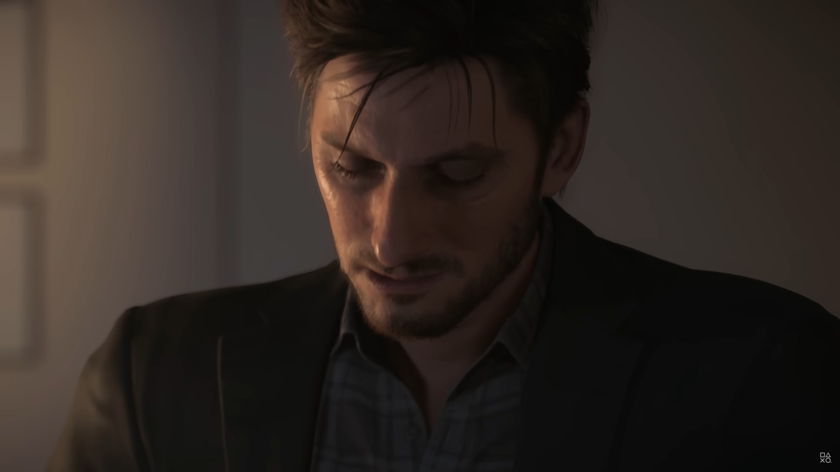
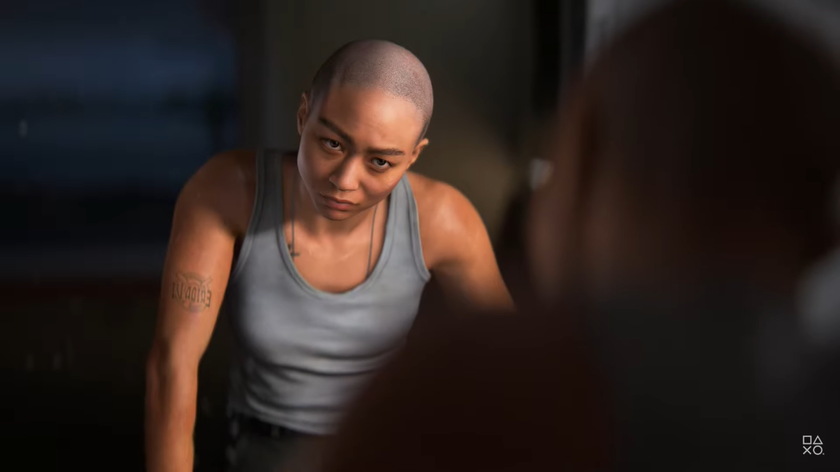








After 37 years, this Commodore 64 classic returns with a new Metroidvania sequel that gives serious old-school Castlevania vibes

Fortnite has had Tomb Raider's Lara Croft locked away in battle pass exclusivity jail for almost 4 years, but she's reportedly getting a new skin very soon
